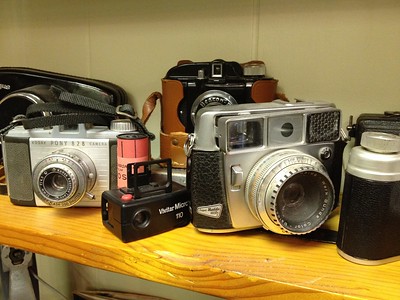In my last post, I wrote about the importance of sharing stories with your donors. Written stories are great, but donors may not have the time or energy to read a story.
This is why you also need to use visual stories. Some people respond better to visual stimuli, anyway. Here are a few ways to tell visual stories.
Tell a story in an instant with an engaging photo
You’ve probably heard the phrase a picture is worth a 1000 words. Cliche, yes, but it’s true.
You can capture your donors’ attention in an instant with an engaging photo. That doesn’t mean one of your executive director receiving an award. Use photos of your programs in action or something else that’s engaging.
Print newsletters and annual reports tend to be dominated by long-winded text. Most of your donors won’t want to read the whole thing. But if you share some engaging photos, they can get a quick glance at the impact of their gift without having to plow through a bunch of tedious text.
Photos can enhance your print communication by breaking up the narrative. You can also complement your written stories with photos. If you’re worried about mailing costs, postcards and other short pieces with photos are the way to go. You could even do a Postcard Annual Report.
If you use social media, you need to communicate several times a week. As your donors scroll through an endless number of posts, an engaging photo can stand out and get their attention.
Use photos everywhere – fundraising appeals, thank you letters/cards, newsletters, annual reports, updates, your website, and social media. Create a photo bank to help you with this.
It’s fine to use the same photos in different channels. It can help with your brand identity. Be sure to use high-quality pictures. Also, make sure your photos match your messages. If you’re writing a fundraising appeal about children who aren’t getting enough to eat each day, don’t use a picture of happy kids.
If you use a caption with a photo, make sure it emphasizes the donor’s role in what’s happening in the picture.
Work with your program staff to get photos and videos (more on videos below). Confidentiality issues may come up and you’ll need to get permission to use pictures of kids.
Highlight your work with a video
Videos are becoming a more popular way to connect. They can be used to show your programs in action, share an interview, give a behind-the-scenes look at your organization, or my favorite – thanking your donors.
You can share videos that are relevant to our current situations. You could talk about how the pandemic, inflation, or systemic racism is impacting the people/community you work with.
I would definitely recommend creating a personalized thank you video. If that’s not possible, you can make a general one.
Make your videos short and high quality. Short is key. If your video is more than a couple of minutes, your donors may not bother to watch it.
You can use videos on your website, in an email message, on social media, and at an event (virtual or in person, if it’s safe).
Spruce up your statistics by using infographics
A typical annual report is loaded with statistics. You want to share these, along with your accomplishments, but you don’t want to overwhelm your donors with a lot of text.
Why not use an infographic in your annual report instead of including the usual laundry list of statistics and accomplishments?
Infographics are also great in other types of communication such as newsletters and updates.
Good visuals will enhance both your print and electronic communication. Keep your donors engaged with all types of stories.

[…] an engaging color photo in your letter or on your pledge form. Photos can tell a story in an […]
LikeLike
[…] your website and ensuring your donors have the ability to notice you, learn about your story, and donate to your organization online was a great undertaking for you. You […]
LikeLike
[…] your organization’s stories, images can enhance your message by conveying what words cannot. Visual storytelling has the power to stir up emotions upon just the briefest of glimpses, elevating the information […]
LikeLike